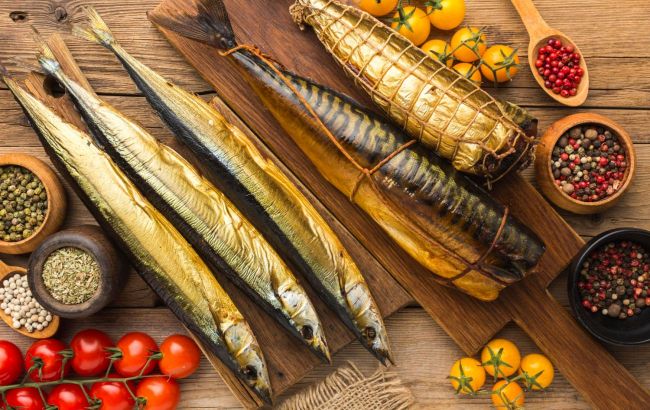Two popular fish that cause blood pressure spikes: Everyone eats them
 The types of fish that lead to high blood pressure have been named (photo: Freepik)
The types of fish that lead to high blood pressure have been named (photo: Freepik)
Not all types of fish are beneficial for health; some can harm people with hypertension. In particular, two popular fish contain high levels of sodium, which contributes to an increase in blood pressure, reports Surrey Live.
Which fish to avoid
Fish is often praised for its omega-3 fatty acids and health benefits, but it is also linked to an increased risk of high blood pressure.
Pharmacist Abbas Kanani pointed out that certain types of fish can exacerbate hypertension, which is a precursor to serious health issues such as heart attacks and strokes.
In particular, consuming dried and smoked fish can hinder the control of healthy blood pressure levels. People with hypertension should avoid these types of fish.
Despite their high protein and nutrient content, dried and smoked fish can cause a sharp rise in blood pressure due to their high sodium content.
"The body holds onto water when we eat salt. When we overeat, the additional water in your blood causes extra strain on the walls of blood vessels, raising blood pressure," added the expert.
To better regulate salt intake, it's advisable to check food labels and avoid products with high salt content, especially those containing 1.5g or more per 100g.
Dietician Sheena Bhageerutty recommends choosing alternatives with lower salt content, such as canned or fresh fish, which offer the benefits of low salt but still provide adequate protein and omega-3 fatty acids.
Which fish contains little salt
Fish that contains little salt is typically fresh or frozen unsalted fish. Here are some examples:
- Cod (fresh)
- Salmon (fresh or frozen, not smoked or salted)
- Halibut (fresh)
- Hake (fresh or frozen)
- Pikeperch (fresh)
- Perch (river or sea, unprocessed)
- Pollock (fresh or frozen)
You might be interested in:
- Top 10 types of fish that doctors recommend for longevity
- Four foods that contain the same amount of Omega-3 as salmon.
This material is for informational purposes only and should not be used for medical diagnosis or self-treatment. Our goal is to provide readers with accurate information about symptoms, causes, and methods of detecting diseases. RBС-Ukraine is not responsible for any diagnoses that readers may make based on materials from the resource. We do not recommend self-treatment and advise consulting a doctor in case of any health concerns.

